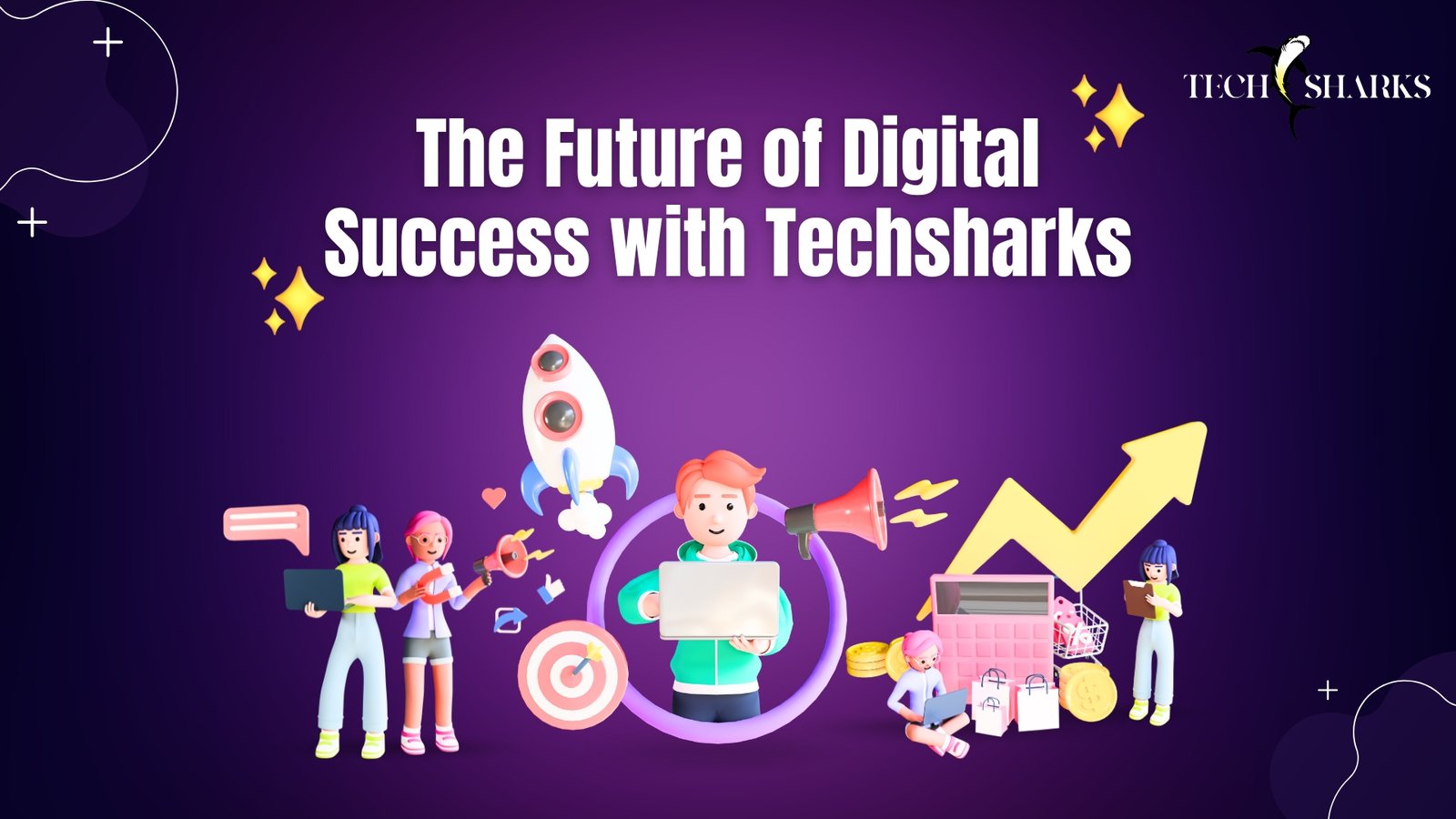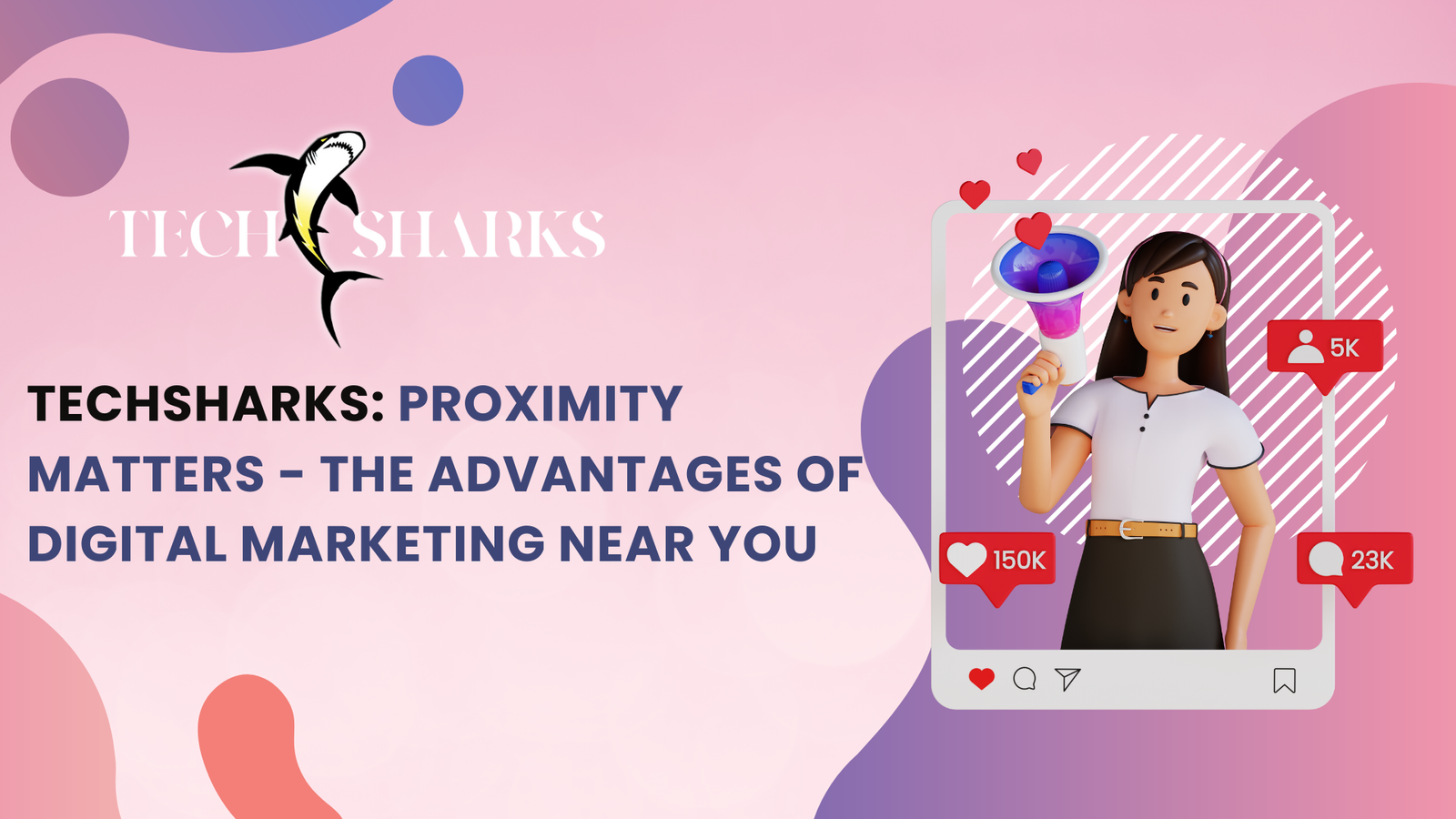Artificial intelligence (AI) and marketing partnerships have significantly changed today’s fast-paced digital world. Harnessing the potential of AI has become not only a choice but a requirement as organizations attempt to remain ahead in the increasingly competitive online environment. In this blog, we’ll go deep into artificial intelligence and marketing, looking at how this dynamic combination changes how businesses communicate with their audiences and create success while knowing about an innovative digital marketing agency, Techsharks, known for its successful marketing strategies and services.
Understanding Artificial Intelligence in Marketing
AI (artificial intelligence) is an area of software engineering that spotlights making machines that can perform undertakings that generally require human insight. It includes creating PC projects and calculations that empower machines to learn, reason, and pursue choices like how people do.
To grasp AI in a simple manner, we should accept the case of a remote helper like Siri or Google Partner. Likewise, these remote helpers use AI technology to comprehend and answer our voice orders. At the point when we pose an inquiry or provide an order, the remote helper processes our words, perceives the examples and importance behind them, and furnishes us with significant data or plays out the mentioned activity.
In this way, in basic terms, automated intelligence is tied in with making machines that can think, learn, and pursue choices like people, assisting us with undertakings like voice orders and customized proposals, and the sky’s the limit from there. It’s tied in with making our lives simpler and more helpful by utilizing the force of canny machines.
5 AI-Powered Marketing Strategies
Digital marketing strategies based on artificial intelligence in marketing are proven to be impactful and result-driven. Let’s know how:
- Artificial intelligence allows firms to curate highly tailored information for their intended audience. Marketing automation with AI may provide personalized product suggestions, email marketing campaigns, and even website content by evaluating customer data and preferences. Personalization improves consumer engagement and conversion rates.
- AI-powered chatbots and virtual assistants deliver customer service and engagement 24 hours a day, seven days a week. In addition, they can answer average consumer questions, help with purchasing choices, and execute orders. This enhances customer happiness while simultaneously lowering operating expenses.
- AI-powered predictive analytics assists firms in forecasting customer behaviour and market trends. Likewise, this enables marketers to make more informed decisions, optimize marketing expenditures, and develop data-driven plans for optimum ROI.
- With the advent of speech-activated devices such as smart speakers and virtual assistants, optimizing content for voice search is critical. Artificial intelligence (AI) assists businesses in understanding natural language inquiries and tailoring their content to rank higher in voice search results.
- Marketing machine learning can evaluate email subscriber data to send customized and timely communications. As a result, it can determine the optimum times to send emails, subject lines that are appealing to recipients, and content that encourages participation, thus enhancing the success of email campaigns.
7 Ways AI Is Revolutionizing The Digital Marketing Game
AI is reshaping the future of digital marketing, changing how organizations communicate with their customers, improve campaigns, and provide tailored experiences. Here are seven significant ways AI is altering the game:
1 Enhanced Audience Targeting
AI-powered marketing analyzes massive quantities of data to generate detailed consumer profiles. Thus, allowing advertisers to target specific demographics and interests precisely.
- AI-powered algorithms recognize patterns and behaviours in audiences, segmenting them based on their preferences, purchasing history, and online interactions.
- Marketers can design custom campaigns for specific clients, increasing engagement and conversion rates.
2 Improved Customer Experience
Chatbots and virtual assistants interact with customers in real-time. Thus, offering instant help and effectively addressing concerns.
- Natural Language Processing (NLP) enables AI to comprehend consumer intent and provide customized replies, improving the customer experience.
- Artificial intelligence-powered recommendation systems assess consumer behaviour and preferences to promote related items or content, enhancing customer happiness and driving sales.
3 Advanced Data Analytics
AI systems collect and analyze enormous amounts of data in real time. Thus, deriving important insights and finding trends people may overlook.
- Predictive analytics use artificial intelligence to estimate customer behaviour, helping marketers to make data-driven decisions and enhance their marketing campaigns.
- AI-powered analytics solutions deliver meaningful information on campaign effectiveness, consumer engagement, and ROI, allowing marketers to fine-tune and optimize their efforts for tremendous success.
4 Dynamic Content Generation
Using AI technology, tailored content can be generated at scale, reducing the need for human content generation.
- Artificial intelligence-powered technologies may produce blog articles, social media captions, and email subject lines depending on precise criteria and desired tone.
- AI algorithms for content optimization assess user interaction data and recommend modifications. Thus, ensuring that content connects with the target audience.
5 Marketing Automation
AI automates time-consuming and repetitive processes like email marketing, lead nurturing, and social media posting.
- Artificial intelligence-powered systems may deliver tailored emails based on consumer behaviour and preferences, enhancing email open rates and conversions.
- Artificial intelligence (AI) is used in automated social media scheduling solutions to find the optimum times to post content and to improve interaction.
6 Conversion Rate Optimization
AI uses A/B testing to determine the most effective website design, layouts, and call-to-action buttons to optimize conversions.
- AI algorithms examine website user behaviour, recognizing trends that lead to conversions and improving the user journey for improved outcomes.
- AI-powered chatbots interact with website visitors, guiding them through the sales funnel and raising conversion rates.
7 Fraud Detection and Security
AI algorithms can detect and prevent fraudulent behaviours such as click fraud, bogus accounts, and payment fraud.
- AI-powered systems continually evaluate user behaviour and transaction patterns, alerting companies and consumers to suspect activity and protecting them.
- Artificial intelligence-based security methods, such as biometric authentication and face recognition, improve data security and user privacy.
To conclude, artificial intelligence in marketing enables better audience targeting, increasing customer experience, and offering superior data analytics. Additionally, it allows dynamic content generation, simplifies AI and marketing strategy, improves conversion rates, and improves fraud detection and security measures. Furthermore, AI technology can give firms a competitive advantage in the ever-changing digital market.




